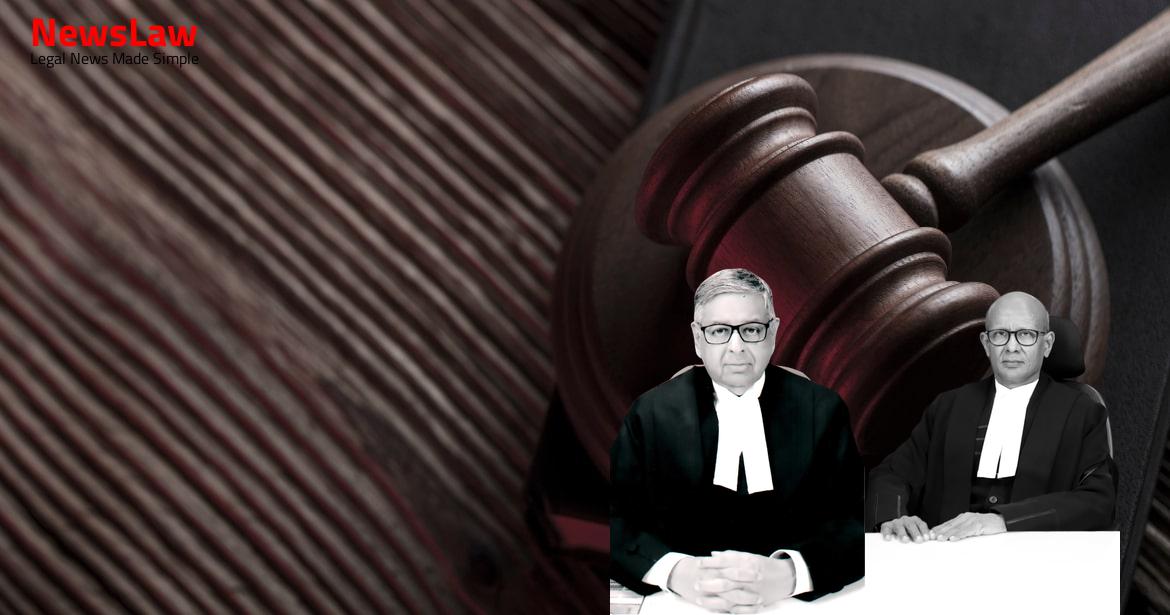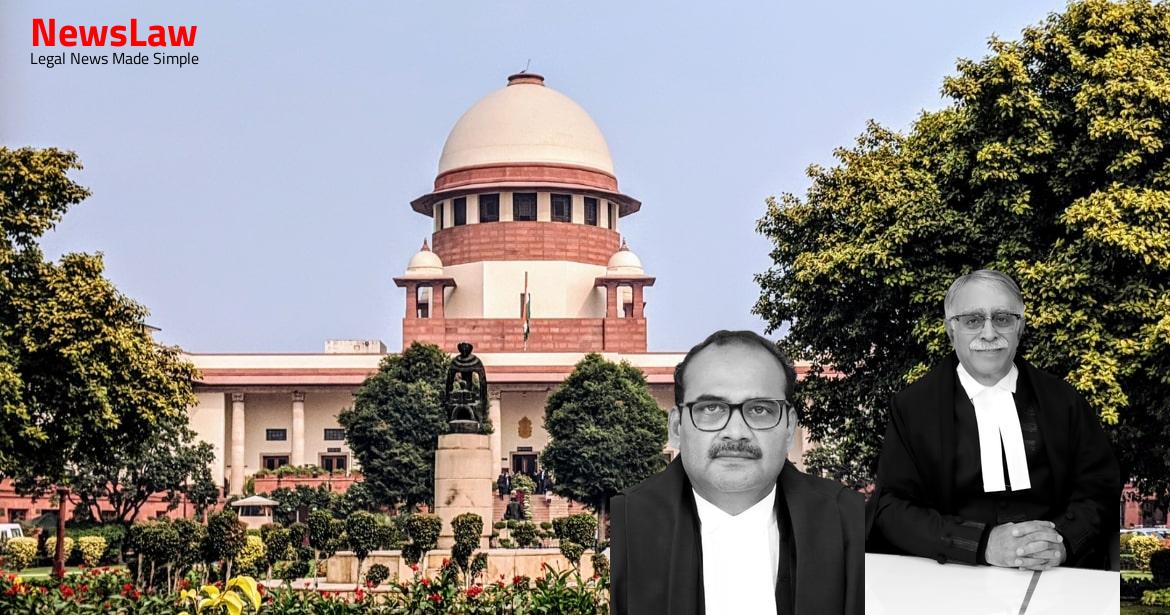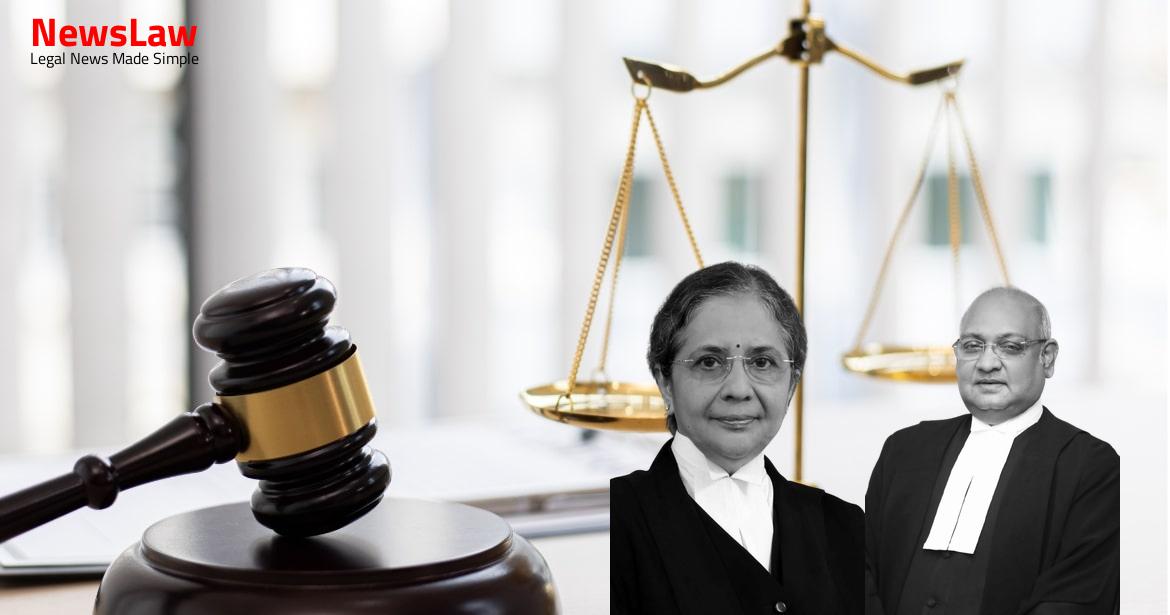Delve into the complexities of expediting the disposal of complaints under Section 138 of the Act, focusing on the court’s legal analysis and recommendations for improving judicial efficiency. This summary highlights key provisions, challenges, and suggested measures to streamline the process, shedding light on the need for effective management of pending cases. Stay tuned for a detailed exploration of legal implications and potential reforms in this critical area of law.
Facts
- Delay in disposal of complaints under Section 138 of the Act was discussed in the hearing.
- Seven major issues were identified by the learned Amici Curiae from the responses filed by State Governments and Union Territories.
- Service of summons on accused has been a significant reason for delay in disposal of complaints.
- Suggestions were made by the learned Amici Curiae to speed up the service of summons, including using dishonour slips from banks, creating Nodal Agencies, and generating unique numbers from the dishonour memo.
- A Committee headed by Hon’ble Mr. Justice R.C. Chavan was formed to consider suggestions for improving judicial efficiency.
- Recommendations related to attachment of bank accounts, pre-summons mediation, and other issues were to be considered by the Committee.
- Statistics on pending cases and submissions from various High Courts were discussed during the hearing.
- The backlog of cases was attributed to the disparity between the rate of institution of complaints and their disposal.
Also Read: Electoral Malpractices in Mayor Election
Analysis
- Section 141 pertains to offences by companies.
- The second proviso empowers the Magistrate to convert the summary trial to summons trial if imprisonment exceeding one year may be necessary or if it is deemed undesirable to try the case summarily, after recording reasons.
- Section 219 allows for the trial of a person accused of multiple offences of the same kind committed within 12 months to be combined into one trial for a maximum of three such offences.
- Section 220 enables a person to be charged and tried at one trial if multiple offences are committed in one series of acts forming the same transaction.
- Section 146 presumes bank slips or memos denoting cheque dishonour as prima facie evidence of the dishonour.
- Section 145 allows the evidence of the complainant to be given on affidavit, which can be read in any inquiry, trial, or proceeding.
- Section 142 lays down conditions for taking cognizance of offences under Section 138 of the Act.
- Courts were burdened with pending Section 138 complaints leading to delays in decisions, prompting the introduction of measures to conclude trials within six months.
- Section 144 deals with the mode of service of summons.
- Cases where the Magistrate anticipates a sentence exceeding one year must be tried as a summons trial per Section 138.
- Section 145(2) empowers the court to summon and examine individuals giving evidence on affidavit.
- The defence not allowed in a Section 138 prosecution is governed by Section 140.
- Section 138 penalizes dishonour of cheques for insufficiency of funds with imprisonment up to one year or a fine double the amount of the cheque.
- Section 143 of the Act mandates that the provisions of summary trial of the Code apply to trials of complaints under Section 138.
- Section 258 of the Code allows the Magistrate to stop proceedings and pronounce a judgment of acquittal in summons cases not on complaint.
- Cases pending at the appellate stage can be settled through mediation. Trial Court can pass orders under Section 143 using inherent power.
- High Courts should issue practice directions to Magistrates to record reasons before converting trials under Section 138 from summary to summons trial.
- Inquiry should be conducted to proceed against accused residing beyond court’s jurisdiction.
- Evidence of witnesses on behalf of the complainant can be taken on affidavit.
- Amendments to the Act are recommended for one trial against a person for multiple Section 138 offences committed within 12 months.
- Magistrate’s power after accused’s appearance under Section 204 was discussed in K.M. Mathew case.
- Magistrate can drop proceedings if satisfied no offence is made out on reconsideration of the complaint.
- Magistrate has implied power to discharge accused if complainant is satisfied with compensation, as per Section 143 of the Act.
- No inherent power of Trial Courts to review or recall summons for Section 138 complaints.
Also Read: Balancing Power and Transparency: Electoral Bonds Struck Down, Disclosure Mandated
Decision
- Further hearing in this matter will be before 3-Judges Bench.
- The Committee will consider any other issue related to expeditious disposal of complaints under Section 138 of the Act.
- The matter will be listed after eight weeks for further consideration.
- High Courts are requested to issue practice directions to Trial Courts regarding the service of summons in multiple complaints under Section 138 related to the same transaction.
Also Read: Recall of Resolution Plan Approval: Legal Analysis
Case Number: SMW(Crl) No.-000002 / 2020



